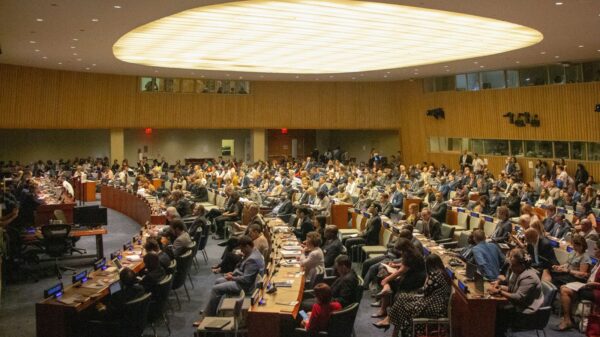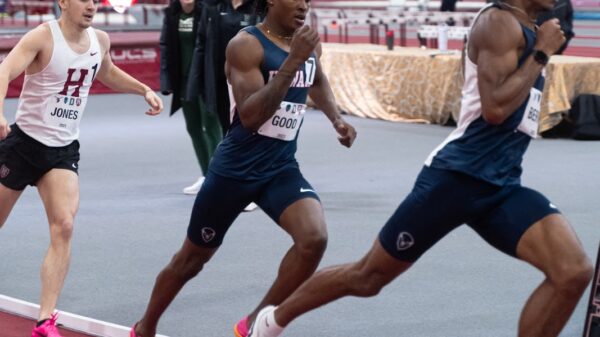The MSRC International Black Writers Festival, hosted by The Moorland-Spingarn Research Center (MSRC), commenced Friday, Oct. 7. The three-day festival was a return to the great literary tradition at Howard University.
Starting out as the Moorland Foundation in 1914, the MSRC holds one of the largest global databases for different documents, artifacts and photographs. Throughout history, MSRC has been one of the nation’s premiere research facilities making connections and pushing out theories using historic information in order to explain, study and contemplate the Black experience within the African diaspora. The festival was inspired by the National Black Writers Festival, which also began at Howard University in 1974, by Dr. Andrew Billingsley, Dr. Haki R. Madhubuti (panelist), Dr. Stephen E. Henderson and Dr. John Killens.
For the first time in 39 years, the event was held on the campus of Howard University through the MSRC.
The 2022 festival attendees heard from student writers, presented by The Amistad—Howard University’s literary arts journal. There were panels of esteemed poets, essayists, publishers, professors, and journalists–some of them Howard alum–where panelists described their origin stories as writers and provided insight on their work.
“I am deeply grateful to the Moorland-Spingarn Research Center and all supporting organizers for this homecoming opportunity,” Dr. Eleanor Traylor said. The graduate professor and former chair of the university’s department of English professed her love for the university during her opening remarks. “To salute the phenomenal beauty of the home I never left and never will.”
“H-U?” she asked the crowd. “You know,” responded everyone.
Traylor was joined by Dr. Haki Madhubuti and Paul Coates, two pioneers of Black literature, on a panel discussion titled, “The Shoulders We Stand On: The Black Literary Tradition.” As founders of two of the world’s oldest independent Black publishing companies, Third World Press and Black Classic Press, Madhubuti and Coates were described by their fellow panelists as conductors.
“For me, the word conduction packs images of forerunners, travel guides, leaders of the way, actual accurate directors, [and] agents for a change,” Traylor declared.
Dr. Dana Williams, Dean of the Graduate School at Howard, served as moderator of the panel. After reading an excerpt from W.E.B. DuBois’ speech, “The Field and Funciton of the Negro College,” she spoke about the importance of learning from those who laid the literary foundation.
“For me, being at Howard, first, as a graduate student and then as a faculty member in English, it was this elder and apprentice model that meant so much to the way that I came up in the world.”
Professor Nikole Hannah-Jones, Pulitzer prize award winning investigative journalist and Howard University Knight Chair in Race and Journalism, continued a similar sentiment during a panel discussion on the second day of the festival.
“Having read works like Ida B. Wells’ autobiography, gave me a sense of bravery to write and put me in a framework of resistance where I could continue to add onto the groundwork of those who challenged and fought society back then,” she stated. “I could never separate myself from that legacy.”
Professor Hannah-Jones sat in conversation with an all female panel of decorated scholars, writers and journalists including Dr. Dixia Ramirez-D’Oleo, Akiba-Solomon and Tricia Hersey. The discussion was moderated by Howard alum, Dr. Natalie Hopkinson–associate professor of Media, Democracy and Society at American University.
Short story and poetry readings followed. Ta-Nehisi Coates moderated as audience members were guided on a spiritual napping journey by Tricia Hersey, felt the words of Ashley Jones, Alabama’s Poet Laureate and imagined themselves as characters in Merone Haderos short story, “The Suitcase,” from her debut collection of stories, “A Down Home Meal for These Difficult Times.”
The following panel, moderated by Jonothan Gray, analyzed and deconstructed the different works of the decorated panel consisting of Jonquilyn Hill, Natalie Moore, Derecka Purnell and Carole Boyce Davies. The topic of discussion quickly segwayed into the progressive conversations being had today and how their respective pieces helped give a platform for representation and perspective to be shared.
Hill, senior producer of explanatory audio at Vox, went into depth about how having these conversations help us understand different outlooks as well as piece together genealogical information amongst the African diaspora.
“Ten years ago we would have never had a conversation about abolition on public radio…these are conversations I am hearing in my community, let’s get this on the table and out there for everyone to hear,” she continued.
Proceedingly, “What’s Going On,” a Howard student writer led discussion, looked at present applications and examples of timeless problems the black community has been facing. Moderated again by Dana Williams, the students spoke of their different inspirations, goals and impacts they wish to make in the community through their future works.
Simone White, a renown art critic, emphasized the importance of analyzing artworks of different genres and generations in a continuous discussion entitled, “The Uses of Writing to Confront Black Realities.” She, alongside Jonathan Gray, Darlene Taylor and Bibi Bakare-Yusuf, talked about literature as a broad interpretation of reality and how it has helped open doors of self-reflection and unpack different traumas the black community continues to persevere through.
“Octavia Butler’s ‘Parable of the Sower’ was written in 1993 and hit the best-sellers list in 2018, there are people reading it, trying to come to terms with this “new world” and here is this work of art that has been waiting for them all along,” Jonathan Gray expressed. “That’s part of the power these works hold.”
The event was live streamed and posted on Howard University’s Youtube platform, taking place in person at the School of Social Work on campus.
Copy edited by Jadyn Barnett













